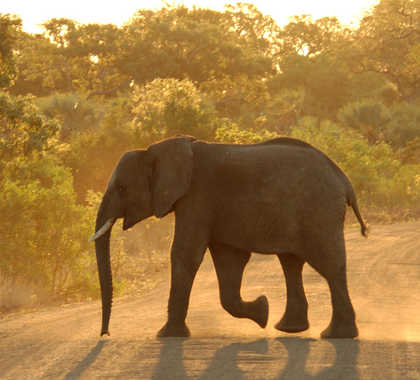The U.S. Department of Interior’s Fish and Wildlife Service (FWS) reversed a ban on the importation of animal parts and trophies from sport-hunted African elephants and lions from select countries.
The FWS action reverses a ban and several other restrictions put in place by former President Barack Obama’s administration.
Under new rules announced in a March 1 memorandum, FWS will approve the import of elephant and lion parts taken by trophy hunters in Zimbabwe and Zambia on a case-by-case basis. The new rules also remove restrictions on the import of parts from trophy-hunted elephants in Botswana and Tanzania, and the import of elephant, lion, and bontebok, a midsized antelope species, from South Africa.
Advancing Species’ Survival
Under FWS’s new standard, import applications will be individually assessed to determine whether the action enhances the survival of the species in the wild, the standard established in federal law.
African elephants have been listed as threatened under the 1973 Endangered Species Act (ESA) since 1979, and the hunting and export of elephant and lion trophies are sharply restricted under the Convention on Trade in Endangered Species (CITES).
“The Service intends to grant or deny permits to import a sport-hunted trophy on a case-by-case basis pursuant to its authorities under the ESA and CITES,” the FWS memorandum states. “As part of the permitting process, the Service reviews each application received for import of such trophies and evaluates the information provided in the application as well as other information available to the Service as to the status of and management program for the species or population to ensure that the program is promoting the conservation of the species.”
Aiding ‘Long-Term Conservation’
In making its decision, FWS determined revenue from permits to hunt elephants aids long-term conservation of the species by providing additional resources to anti-poaching and other conservation efforts in their range countries.
FWS says its decision was made in part in response to a long-running lawsuit against the agency filed by Safari Club International (SCI) and other conservation organizations that have spent millions of dollars on conservation efforts in Africa. The lawsuit argues FWS’s ban on trophy-hunted elephant and lion parts has undermined conservation efforts in those countries.
Hunting ‘Beneficial to Wildlife’
SCI President Paul Babaz says FWS’s decision will be good for hunters and wildlife alike.
“SCI supports legal hunting, which time and experience have shown to be critical to the successful conservation of wildlife worldwide,” said Babaz. “SCI works with other hunting-related organizations and with government agencies around the world to protect the future of both hunting and wildlife, whose fates are inexorably linked.
“The Fish and Wildlife Service’s decision shows it recognizes hunting is beneficial to wildlife,” Babaz said.
The FWS memorandum says the agency will continue to monitor the status and management of the species in their range countries to determine whether changes to U.S. policy are warranted in the future.
H. Sterling Burnett, Ph.D. ([email protected]) is a senior fellow at The Heartland Institute.





